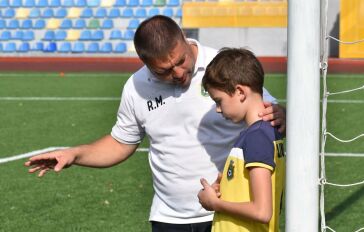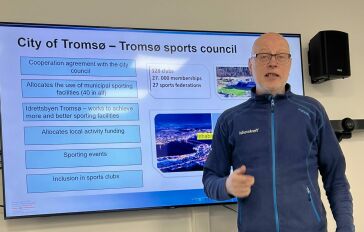
When the war started many Ukrainian families were forced to join their relatives in the search of safe staying, different generations of the same family, who previously met on family holidays, decided to live together under the same roof. However, living with your family is not always about support and unconditional understanding, but also about stress. The effect of household size is what thousands of Ukrainian families are coming through right now.
Nadia Pereviznyk, an organizational psychologist, explains why anger towards loved ones does not mean that you are a bad person and tells how to communicate with your relatives to preserve relationships with them.
– Effect of household size is not something new. We all used to live as large families with parents, grandparents, etc. in one house because it was not economically possible for everyone to have their own home. It was normal for the previous generations as well as to quarrel with family members. Now the generations of the same family live separately because most of us have access to a mortgage or people rent apartments, and the fact that relatives had to come together causes stress. And that’s okay, and the quarreling is. Aggression is a natural reaction, but you should and can handle it.
“House rules” as conflict prevention
It is important to come up with house rules together. We can talk about zoning, division of responsibilities, financial issues, purchase of items of common use, and even the volume of the TV sound, etc. Zoning itself can be the most urgent, especially in small apartments. Since most of us work remotely and everyone needs to understand what the working areas are, what hours should be quiet, so you can have zoom conferences, for example. It is especially important to explain to children that parents work, earn a living, and it is very desirable not to enter their areas, not to disturb them, and not to turn on loud music at exact hours.
You need to negotiate on everything as soon as you see a discrepancy in your attitude to some things. Often, arguments arise from elementary things, like understanding what a clean pan looks like. Some people think it should be clean only inside, the others take it clean both inside and outside. We all have the “curse of knowledge”, we know what a clean pan should look like. It is necessary to approve the jointly formulated rules. It always goes through difficult conversations and conflicts, it is a normal and natural process. Do not think you are not a diplomat and do not know how to negotiate. Just form this memorandum and these rules.
Ecological communication, or how not to get upset over little things
What to do when the atmosphere heats up? I highly recommend Rosenberg’s methods of ecological, nonviolent communication to everyone. He is an American psychologist, whose method was originally used for social services, but now it is widespread among people.
The key principles of Nonviolent Communication are: to listen, to give feedback, to ask questions, to ask for help, to synchronize concepts just to avoid the “Tower of Babel” and to separate facts and your interpretations. And don’t use reproaches, pretensions in your speaking, but so-called “I-statements”.
It is important to separate the rational from the emotional. When you want to snap and say to your loved ones: “You don’t respect me because there is a pile of dirty dishes from yesterday” you need to stop for 3 seconds and analyze the situation. It is rational or factual that the dishes have not been washed since yesterday. But why do you react so emotionally to it? And the answer can be different: you are tired, something hurts, you are anxious, you have a lot of extra work. And when you separate the rational and emotional components, the next step according to Rosenberg is to learn to ask for help. “Could you wash the dishes, please?” “Let’s wash the dishes as we agreed, ok?” “Let’s talk about those dirty plates”. This method is like seasoning – a request and search for joint solutions.
Don’t start with “you don’t love me, you don’t respect me”, talk about the problem, ask for help, tell what is important to you, and tell why it is important. Communication is the basis of relationships. Yes, this skill needs to be practiced, but it is not always as simple as it seems. But start separating facts and interpretations, it helps a lot in life. This is an important moment of soft, nonviolent communication with loved ones in times of aggression. I strongly advise you to be gentle with your loved ones and the other Ukrainians. Be strong with your beliefs and your way to victory, and be hard with the enemy.
I call it the avocado principle: to be soft on the outside and have a hard stone made of your faith and interests on the inside.


Empathy and stop-phrases
We often confuse empathy with compassion. Empathy is not only sympathy, it is its peak concentrated form. If you do not sympathize with someone, do not shame yourself that you are a bad person.
What is empathy? On the one hand, it is the body’s reaction to what is happening to other people in your environment. Both bad and good. Empathy is your facial expression when you realize that your friend has won 1 million hryvnias in the lottery. And on the other hand, it is also a skill, it can be developed, and it relates to your background and upbringing. Empathy has very cool synonyms: sensitivity, resonance, response, and consonance. It means you can be with a person in his problems and experiences, but not go into the phase of active actions, not to solve his problems. Empathy is active listening. And you should show that you hear the person close to you: do not interrupt him, try to hug or hold his hand, show your position, or ask about the situation. If you still want to help, you should not invent a bicycle, but ask the person HOW you can do it. And here the “magic” reveals – sometimes people need to be heard. They do not need to be rescued! So you keep your resources!
Stop phrases that are important to avoid

“I understand you”. It is impossible in reality, everyone has their own truly unique experience.
“You are lucky to be alive when the others are dead”. This is a devaluation of a person’s feelings, a comparison with other people.
“What if you had listened to me”, “Why didn’t you leave immediately”. It is an evaluation of the person’s actions
“Oh, poor you”, “I feel so sorry for you. This is how we drive a person into the position of a victim even more
Emphasize the positive and strong sides of the personality, and if you want to help, just ask how you can do it.



So, in summary, how to live happily with your relatives. It is essential to understand that aggression and a range of negative feelings towards family members are normal. Do not shame yourself for this, but convert energy into solving problems through communication. It is difficult to live with people but it is impossible to stay without them. That’s why we have to learn to win together.






